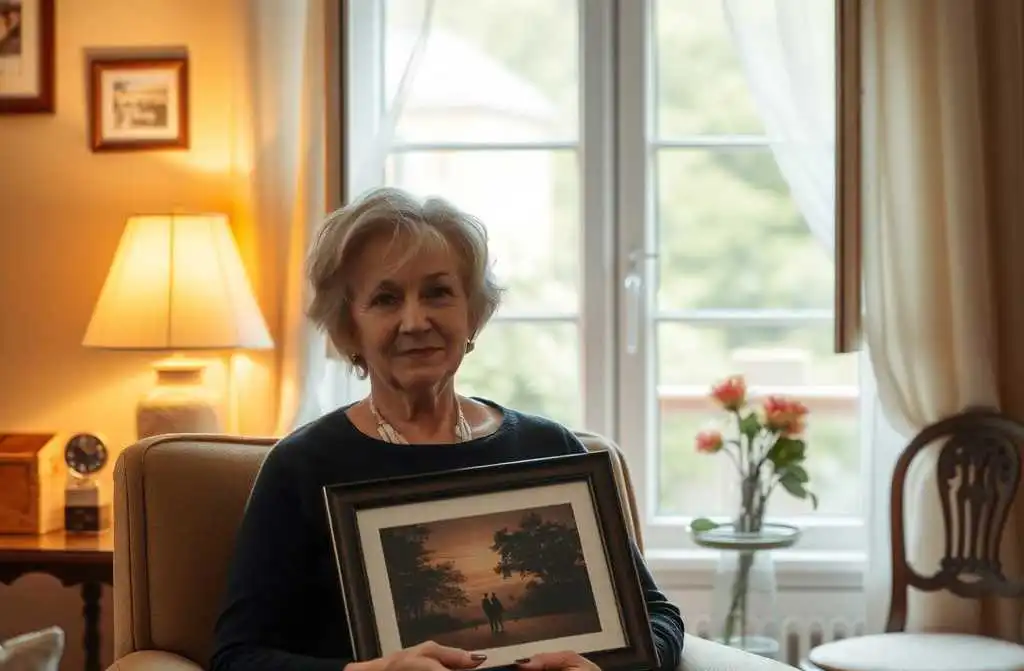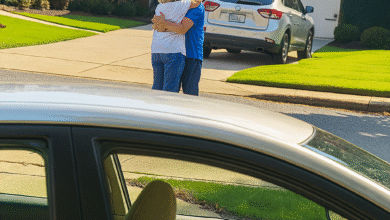I stayed with him until his last breath, but his children threw me out like a stranger.

I was there for Felipe until his very last breath. And yet, his children cast me out, as if I had never mattered.
When I met Felipe, I was already 56 years old. He was a widower, and I was a divorced woman with a wounded heart and faded dreams. Life had already shaken us enough, and all we were looking for was a bit of peace — that calm, comforting warmth without grand promises.

We lived together for eleven years. Eleven peaceful years, filled with quiet joys: late breakfasts, morning walks to the market, tea by the fireplace. We didn’t argue, didn’t have conflicts. We simply shared a life. His adult children were polite but distant. I never intruded, never pushed — they were his family, not mine.
Everything changed the day the doctors gave Felipe his diagnosis: cancer. It was aggressive and merciless. From that moment, I became his eyes, his hands, his breath. I helped him stand when he couldn’t walk, I fed him, tended to his wounds, caressed his forehead during the pain. I held his hand when he gasped in agony. The nurses would say, “You’re incredible. Not everyone would do this for someone they love.” But to me, it wasn’t heroic. It was love.
One of his last nights, he squeezed my hand and whispered:
— Thank you, my love…
By morning, he was gone.
The funeral was simple. His children arranged everything. They allowed me to be there, nothing more. No one asked me to speak, no one thanked me, no one offered support. I didn’t expect them to. Even though we lived together, Felipe had never officially transferred his share of the house to me. He always said:
— It’s all taken care of. They know you’ll stay here.
A week after the funeral, the notary called. Everything — absolutely everything — had been passed on to his children. My name wasn’t on a single document.
— But we lived together for eleven years… — I whispered.
— I understand, — he replied, coldly. — But according to the paperwork, you don’t exist.
And just a few days later, they came to the house. The eldest daughter looked at me with a blank face and a cold voice:
— Dad is gone. You don’t matter anymore. You have one week to leave.
I was speechless. Everything I had breathed and lived during those years was in that house. The books I used to read to him out loud. The flowers we planted in the garden. His old mug, the one he only used when I made him tea. My favorite mug, the one with a crack he fixed himself. Everything that made up my life stayed behind the door they told me to shut forever.
I rented a tiny room in a boarding house. I started cleaning houses — not because I needed the money, but to keep from losing my mind. To feel needed somewhere. You know what was the most terrifying part? Not the loneliness. What terrified me most was feeling like I had been erased. Like I had never existed. Like I was just a shadow in someone else’s home. A home where, once upon a time, I was the light.
But I am not a shadow. I existed. I loved. I held his hand when no one else would. I was there when he left this world.
And still, the world revolves around paperwork. Last names. Bloodlines. Wills. But there are other things — warmth, care, loyalty — the things no legal document can capture. And if even one of them, standing by the coffin, had looked me in the eye and seen not “some woman,” but the person who stood by their father… maybe the story would have ended differently.
To everyone with a family, to those who have lost someone or fear they will: remember this — what’s written in documents isn’t everything. What truly matters is who stayed during the pain. Who didn’t walk away. Who held on when everything else was falling apart. That… that is real family.
I hold no grudge. The memory is enough for me. Felipe said:
— Thank you, my love.
And in those words… there was everything.





